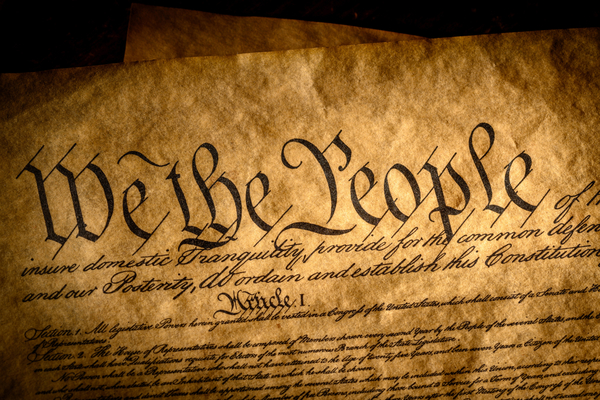Among the most pernicious lies about Article V is the contention that only the text of the article can be used to determine its meaning. In other words, rather than considering the context and historical record, this theory holds that we should interpret the technical language of Article V with nothing more than the words of the Constitution.
This is the primary argument made by Steve Byas in a recent editorial published in the Epoch Times. Because Article V does not lay out a detailed plan for an amendments convention, Byas argues, Congress would simply take over the entire process.
"The argument by the organization Convention of States that it would be the state legislatures that chose the delegates has no support in the text of Article V of the Constitution—none," he says.
There's just one problem: any reputable constitutional scholar knows that constitutional interpretation requires more than just a consideration of the raw text of the Constitution.
Professor Rob Natelson is one of those constitutional scholars. He's the nation's leading expert on Article V, and he outlined in his own Epoch Times editorial how we know what will happen at a Convention of States.
"Article V outlines the amendment process, but like any other part of the Constitution, you must read it in historical context," he says. "Every informed student of the Constitution knows that when the document uses specialized phrases, we have to examine the historical record to fill in the details."
He continues: "Fortunately, the amount of historical and legal clarification we have for Article V is enormous, so when you hear charges that Article V is 'vague' or 'sketchy,' chalk it up as a confession of ignorance."
Byas refuses to acknowledge--or simply does not know--that we have a wealth of knowledge about how interstate conventions like an Article V Convention of States operate.
For example, when Article V says that Congress "calls" the Convention, we know from historical precedent and the words of the Founders that the "call" comprises naming "the place, time, and state-designated subject matter" of the Convention. That's it. Congress doesn't control the delegate selection process, as Prof. Natelson points out.
"Then the legislatures of the participating states either select their convention commissioners (delegates), or designate procedures for doing so. The states give the commissioners their instructions and define their powers ('agree to this, don’t agree to that'). Modern claims that a convention of states is 'uncontrollable' are wildly erroneous. So also are assumptions that commissioners are popularly elected," he says.
At the Convention, historical precedent also tells us that each state only gets one vote.
"Convention-of-states procedures are well established," Natelson points out. "Each state has as much voting power as any other state. No convention has ever changed this rule. So the common claim that convention voting standards are a 'mystery' is likewise wrong. So also is the myth that Congress can control a convention."
Thus, the Convention makeup would exactly replicate the political tendencies of state legislatures. Since states (not Congress) choose delegates, and each state only gets one vote, the majority at the Convention would lean in a conservative direction.
Logic also tells us that Byas' case makes little sense. Why would the Founders ratify two ways to amend the Constitution that are both controlled by Congress? How could the brilliant minds that wrote the Constitution fail to see that it's redundant and counterproductive to give Congress control of two methods of constitutional amendment?
The reality, of course, is that the Founders didn't make a mistake. They wrote Article V with two amendment-proposing procedures, one controlled by Congress and the other by the states.
We know this because that's exactly what George Mason pointed out on one of the final days of the constitutional convention. Of the first draft of Article V that did not include the Convention of States option, Mason said (according to Madison's notes):
“Col: MASON thought the plan of amending the Constitution exceptionable & dangerous. As the proposing of amendments is in both the modes to depend, in the first immediately, in the second, ultimately, on Congress, no amendments of the proper kind would ever be obtained by the people, if the Government should become oppressive, as he verily believed would be the case.” (See Madison’s notes 15 Sep 1787).
Mason called for a way for the states to propose constitutional amendments, and the Founders unanimously agreed to include the Convention of States option in Article V.
Those who seek to misinform the public about Article V are either ignorant about the history of the Constitution or harbor an ulterior, malicious motive. Here's the truth: we know how a Convention of States would operate based on the dozens of previous non-Article V conventions of states. We also have the testimony of the Founders, the historical record, and judicial precedent on our side.
If you want to get involved with the Founders' solution to federal overreach, sign the petition below! A Convention of States is the only safe, legal, and effective way to rein in Washington, and over five million Americans have already voiced their support. Join them today!






